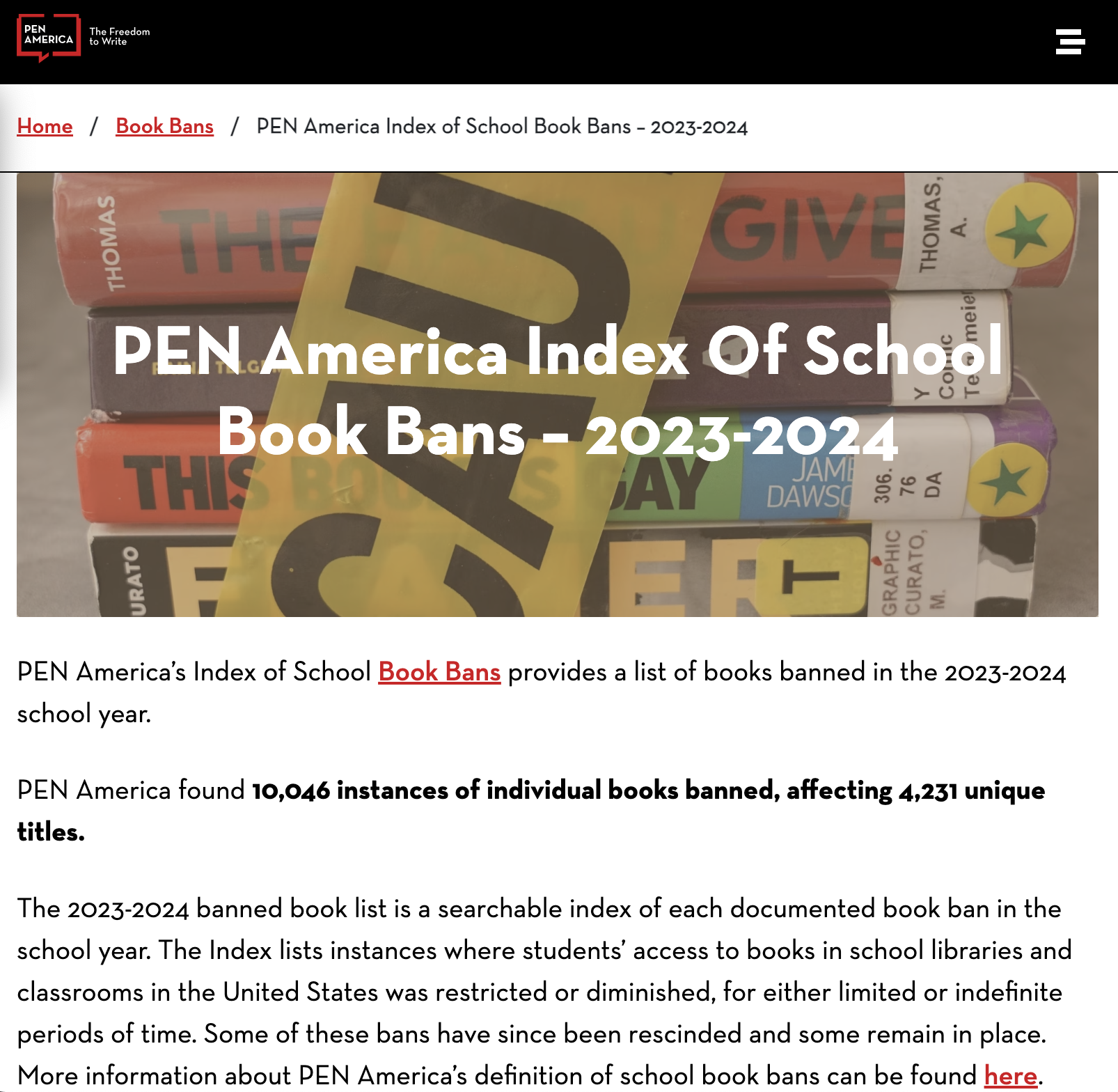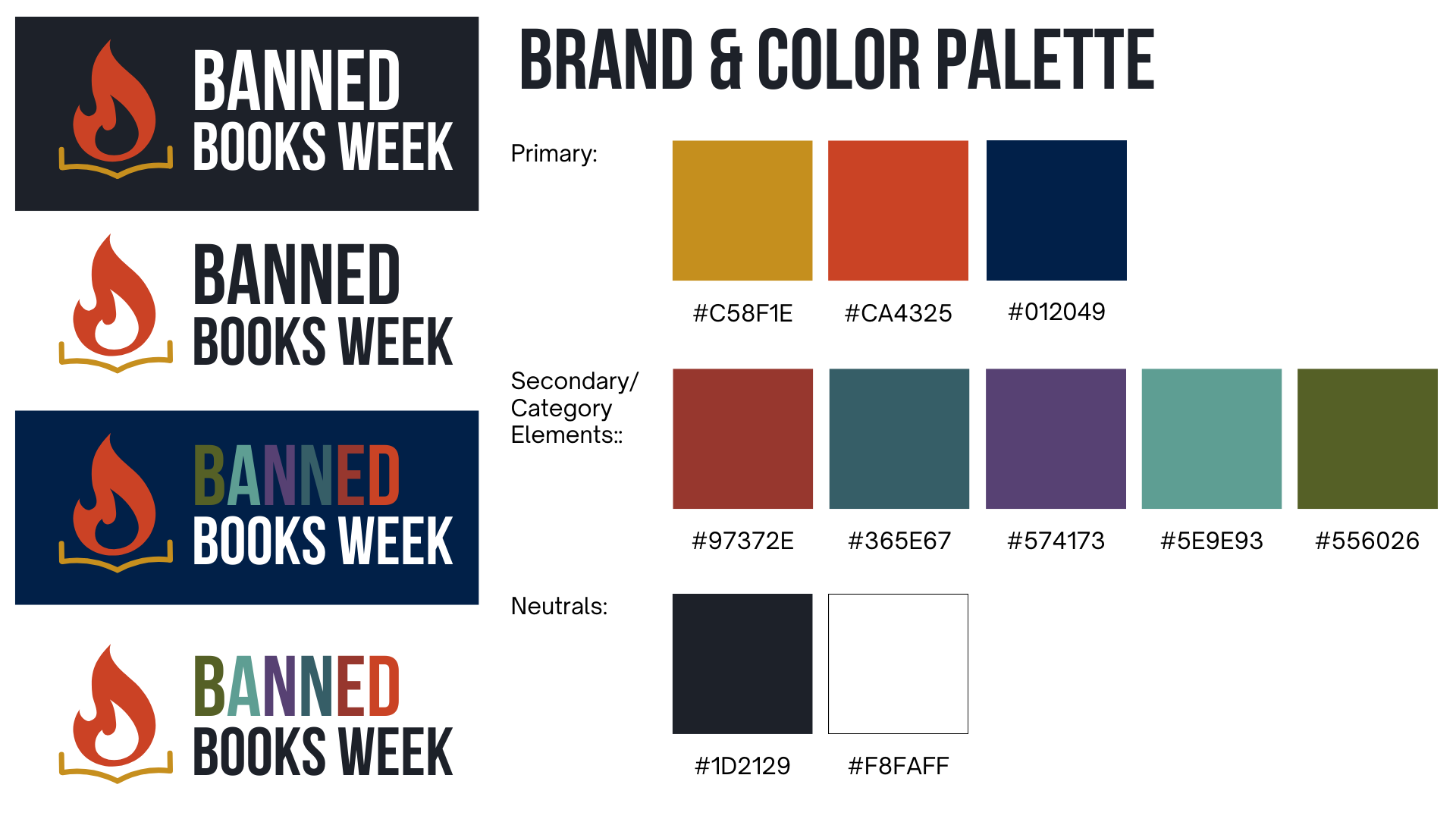Access matters. Context matters. Stories matter.
Banned Books Week is more than a chance for creative displays, it is a vital opportunity to raise awareness about ongoing censorship in schools and libraries across the United States. From children’s books with LGBTQ+ characters to works highlighting diverse histories (and even the Bible) books continue to be challenged and removed for a wide range of reasons. This past September, I led our bookstore’s Banned Books Week initiatives, including curated displays, social media campaigns, and educational newsletters designed to inform and inspire our community. As the only independent bookshop in our city, we take seriously our role in defending the freedom to read and often partner with our local library to expand that reach.
This case study explores my design of a banned books search engine: an intuitive, educational tool built to help users better understand not just which books are being banned, but why.
-
Role
Theoretical Add Feature UX/UI Designer
-
Timeline
Version 1 (2 Weeks), Version 2 (1 Week)
-
Skills
User Research, Usability Testing, Graphic Design, Prototyping
-
Tools
Figma, Canva
Competitor Analysis
Problem
One challenge book sellers face is finding a comprehensive search tool that not only lists banned books by year but also provides insight into why they were banned. While PEN America offers a thorough and widely-used index that identifies which books were banned, in which districts, and during which school years, it lacks information on the specific reasons behind each ban. As a result, I often found myself having to search for these details individually. The Banned Books Week website does provide reasons for its annual "Top 10 Banned Books" lists and for each decade’s highlights, but there are numerous other titles in between that are also challenged or banned. Many people want to know more about these books, yet finding the reasons requires navigating multiple sources.
This project aims to address this gap through an intuitive search engine for the Banned Books Week official website. This feature would allow users to easily search banned books by reasons for their ban, the year(s) they were banned, the specific state or school district involved, and more. By streamlining this process, the search engine would provide a more accessible, user-friendly tool for those interested in exploring the history and impact of banned books.
Educational technology often lacks attention and investment because it isn't seen as profitable. However, education, especially learning from banned books, has the power to foster autonomy, empathy, community, and self-awareness.
Personas
Choose impactful and relevant banned books to stock for Banned Books Week, focusing on titles that resonate with the community and support meaningful discussions.
Help a customer (such as a teacher, parent, or student) understand the context behind a banned book and its relevance.
Prepare an engaging display and social media content for Banned Books Week, focusing on relevant themes and frequently challenged titles.
Brand & Color Palette
This theoretical rebrand draws inspiration from the muted tones often found in vintage libraries and classic bookshops. I submitted this first version (left) and months later decided to re do the color palette and branding (right). I am much happier with Version 2 (V2).
-
My original logo felt too busy, and my second attempt didn’t scale well across different formats but the final version struck the right balance. I found the perfect flame icon, but couldn’t find a book shape that fit, so I created one using four simple lines. Choosing the right font was also a challenge; I wanted something tall and narrow to convey boldness without feeling too heavy.
-
I aimed for a palette that reflects the serious and complex themes present in many banned books. A bright or overly cheerful color scheme didn’t suit the tone of the project, but I still wanted to incorporate enough color to ensure that key elements stand out and guide the user’s attention.
Research
Background
I began with a survey and user interviews targeting booksellers, librarians, educators, and frequent bookstore customers. I also conducted a competitive analysis of existing resources like PEN America’s Index, ALA’s lists, and the Banned Books Week website.
Methods & Key Findings
Methods:
User interviews (3 personas: Gen Z bookseller, former teacher-turned-bookseller, 67-year-old shop owner)
Online surveys
Secondary research (competitor analysis, usability audit of current resources)
Key Findings:
Users want to search books by why they were banned, not just when or where.
Information is often scattered and lacks historical/social context.
Users prefer a simple interface with filters and a predictive search bar.
Prototype Testing
Approach:
Limited-resource usability testing with clickable prototypes. I asked 3 participants (mirroring my personas) to complete tasks like:
Find a book banned for LGBTQ+ content in 2022
Filter books banned in Texas for race-related themes
Save/bookmark a frequently discussed book
Success Metrics:
Tasks completed without error
Comments on ease of use
Suggestions for improvement
Findings:
Users loved the expandable summaries and social context
Some confusion around combining multiple filters—this led to clearer visual hierarchy in the final version
“Recently Viewed” and “Save for Later” features were praised and prioritized
Banned Books Search Engine Version History


















